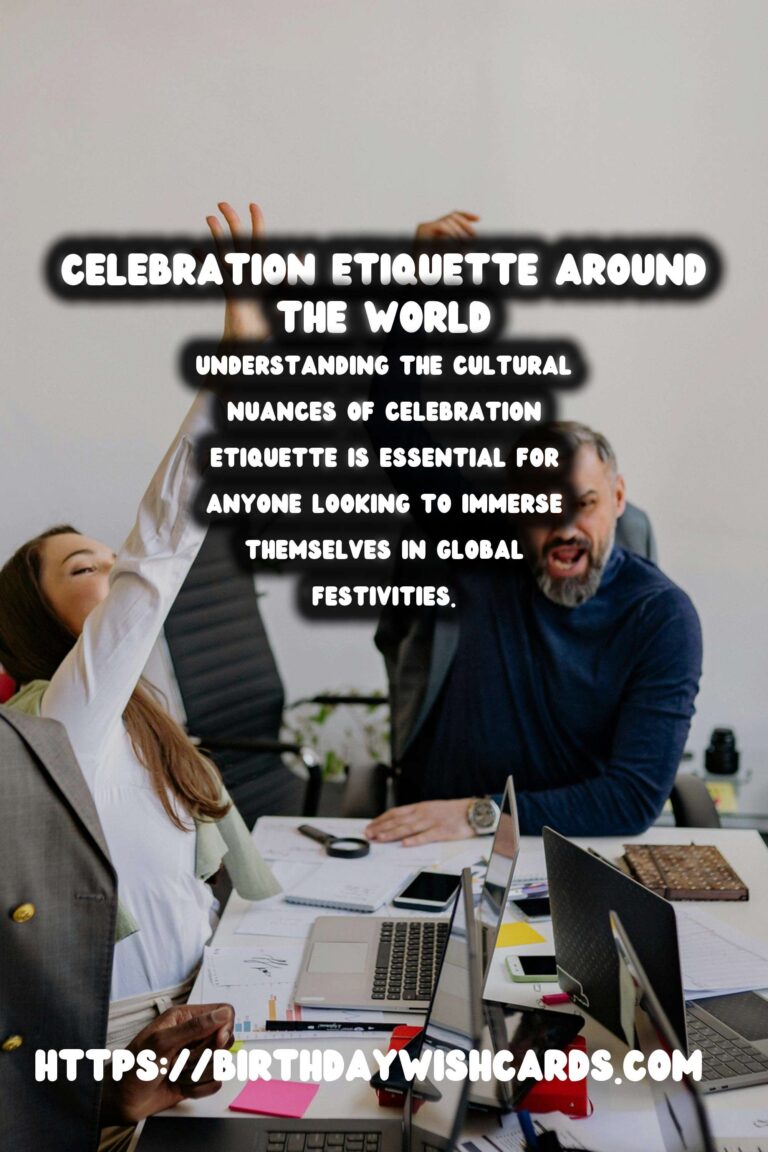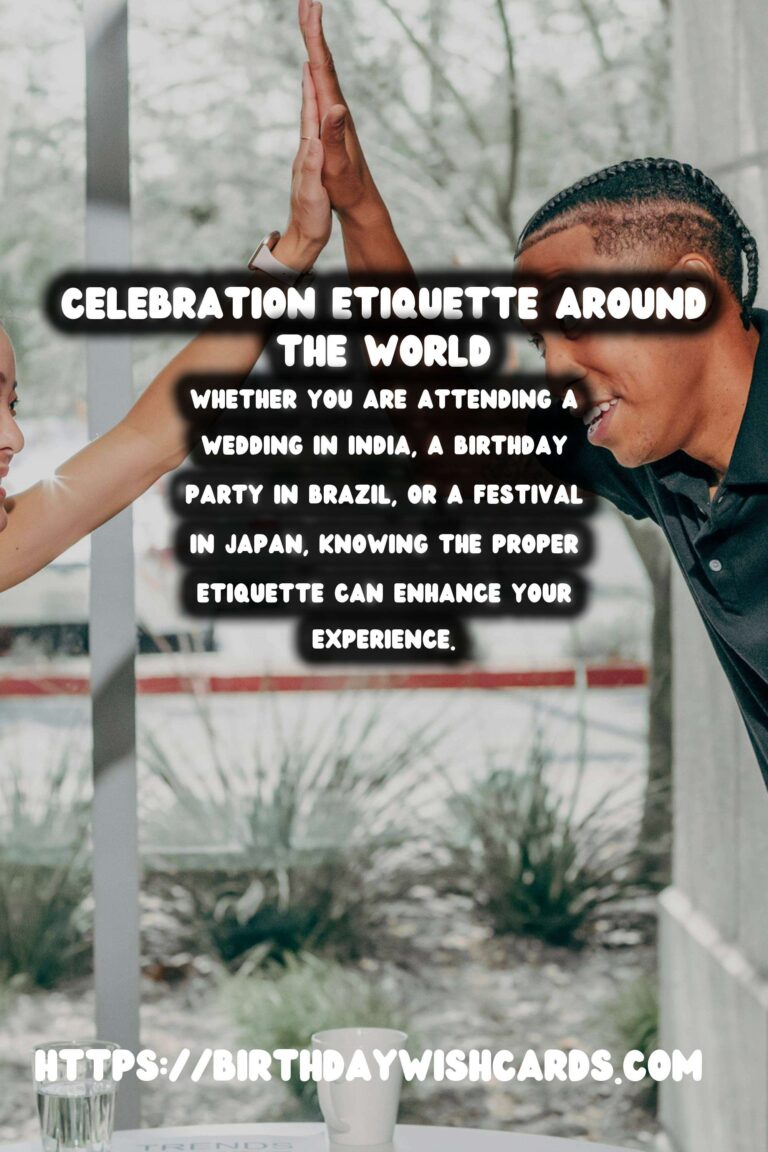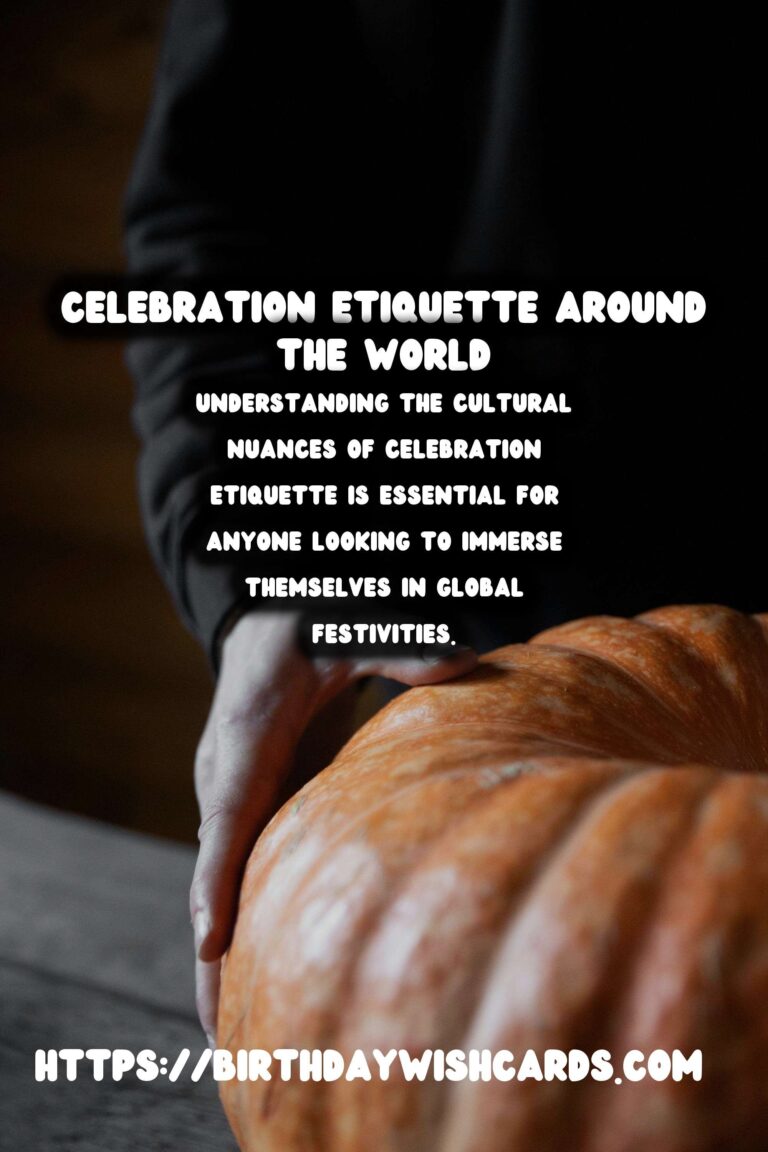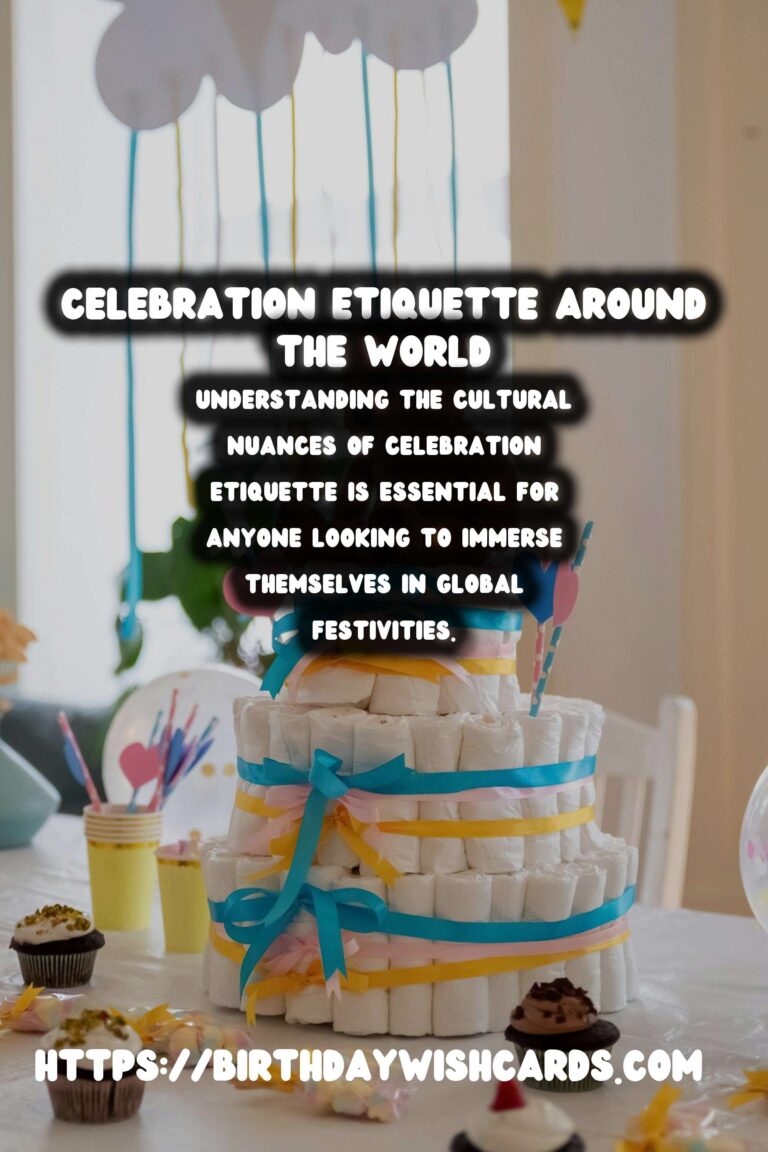
Understanding the cultural nuances of celebration etiquette is essential for anyone looking to immerse themselves in global festivities. Whether you are attending a wedding in India, a birthday party in Brazil, or a festival in Japan, knowing the proper etiquette can enhance your experience and show respect for local traditions.
Why Is Celebration Etiquette Important?
Celebration etiquette varies dramatically across cultures. In many societies, adhering to local customs shows respect for the host and the community. Additionally, being aware of these practices can prevent misunderstandings and enhance your social interactions during celebrations.
1. Festivals and Religious Celebrations
Across the globe, numerous festivals honor various religious and cultural traditions. Altogether, these celebrations showcase a rich tapestry of human expression. Here, we’ll explore some notable examples:
Diwali – The Festival of Lights (India)
Diwali, one of the most significant Hindu festivals, symbolizes the victory of light over darkness. During this time, families clean their homes, decorate with lights, and exchange sweets.
Etiquette Tip: It is customary to greet friends and family with a “Happy Diwali” and offer sweets as a gesture of goodwill.
Christmas – A Global Celebration
Christmas is celebrated differently around the world. In the United States, it’s marked by gift-giving and family dinners, while in Italy, the emphasis may be on the Feast of the Seven Fishes.
Etiquette Tip: When accepted to a Christmas dinner, try to bring a small gift or dessert to share with your hosts.
Eid al-Fitr – A Month of Ramadan (Islamic Countries)
Eid al-Fitr marks the end of Ramadan, a month of fasting. It is a time for prayers, feasting, and giving to charity.
Etiquette Tip: It is customary to greet others with “Eid Mubarak” and to share meals and gifts with friends and family.
2. Personal Celebrations
Personal milestones such as birthdays, anniversaries, and graduations are often marked with specific cultural traditions.
Birthdays in Different Cultures
In many Western countries, celebrating birthdays typically involves cake, gifts, and parties. However, countries like Mexico have unique traditions such as the “quinceañera” for a girl’s 15th birthday.
Etiquette Tip: If invited to a birthday celebration, remember to RSVP and bring a gift for the celebrant.
Anniversaries – More than Just a Date
Anniversary celebrations can differ widely. For example, it’s common for couples to renew their vows during milestone anniversaries, especially in American cultures.
Etiquette Tip: When attending an anniversary celebration, it’s respectful to acknowledge the couple’s journey and consider giving gifts that symbolize love and commitment.
3. Dance and Music Etiquette
Music and dance are integral to celebrations worldwide. However, each culture has its own etiquette surrounding them.
Social Dancing in the U.S. and Europe
In many Western cultures, joining the dance floor is a festive way to celebrate, often including styles like salsa or line dancing.
Etiquette Tip: Always ask for permission to dance with someone; this shows respect for their personal space.
Traditional Dance in Africa
In many African cultures, dance carries deep cultural significance and is often group-oriented.
Etiquette Tip: Participate with enthusiasm and be open to learning the steps from others!
4. Gift-Giving Practices
Gift-giving is a core component of many celebrations, but what is considered appropriate varies widely from culture to culture.
Japan – The Art of Gift Giving
In Japan, giving gifts involves careful consideration of presentation, and it’s essential to offer the gift with both hands.
Etiquette Tip: Avoid giving gifts in sets of four, as the number four is associated with death.
Brazil – A Celebration of Friendship
In Brazilian culture, gifts are often exchanged during gatherings and are a symbol of friendship and goodwill.
Etiquette Tip: When invited to a Brazilian celebration, bringing a small gift such as flowers or chocolates is appreciated.
5. Dining Etiquette Around the World
Dining is an integral part of most celebrations, and understanding the dining etiquette is crucial.
The United States
In the U.S., it is common to either share a meal family-style or opt for a sit-down dinner.
Etiquette Tip: Always wait for the host to signal when to begin eating.
France – A Culinary Experience
French celebrations often center around elaborate meals, and it’s customary to enjoy each course thoughtfully.
Etiquette Tip: Do not rush through your meal; savor the flavors and enjoy the company.
6. Final Thoughts: Embracing Celebration Etiquette
Learning about celebration etiquette around the world enriches your understanding and appreciation of different cultures. As you prepare to experience various festivities, remember to approach each celebration with an open heart and mind.
By respecting local customs and traditions, you not only enhance your experience but also create meaningful connections with others.
Conclusion
One of the greatest joys in life is connecting with others through celebration. By learning the etiquette associated with different cultural practices, you empower yourself to engage thoughtfully and respectfully in diverse environments. Enjoy the festivities, embrace the differences, and make lasting memories!
Understanding the cultural nuances of celebration etiquette is essential for anyone looking to immerse themselves in global festivities. Whether you are attending a wedding in India, a birthday party in Brazil, or a festival in Japan, knowing the proper etiquette can enhance your experience. 









#CelebrationEtiquette #CulturalAwareness




